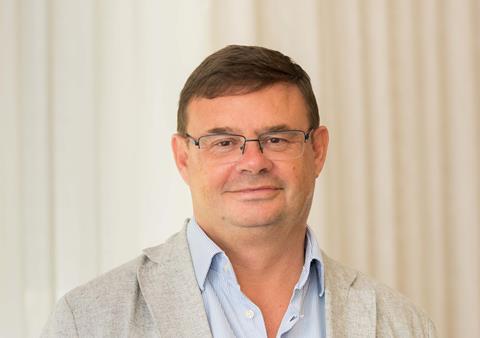Venice Production Bridge is adding an extra day to its schedule this year, the latest in a series of additions to the festival’s industry event.

Pascal Diot, head of Venice Production Bridge (VPB), launched Venice Film Festival’s industry event back in 2012. At the time, Venice didn’t have an official market — the industry used to meet at the bars of the Excelsior or the now shuttered Grand Hotel des Bains.
The first edition, Diot recalls, attracted 400 people. He’s since built up VPB slowly but surely each year by adding layer after layer of programmes, all with a focus squarely on production and producers. The result is a very different kind of event to sales and distribution markets like Cannes’ Marché du Film or the Berlinale’s European Film Market (EFM).
VPB purports to offer programmes spanning “the complete chain of production”: from the idea and IP (the Book Adaptation Rights Market) to the financial completion of projects (the Venice Gap-Financing Market) through to works in progress (Final Cut in Venice) and sales and distribution (Market Screenings), as well as streaming (Meet the Streamers).
Attendance has levelled out at just over the 3,000 mark in recent years. It’s a smaller number than the Marché du Film or EFM, but that is partly due to the challenge of accommodating more people in Venice, particularly on the Lido. “Unfortunately, I just don’t have big venues [on the Lido],” Diot says.
“I’m not looking for volume, I’m looking for quality,” he adds. “It’s mostly decision-makers who are coming to Venice — I don’t need the assistant of the assistant.”
This year, the VPB programme will run for six days rather than the traditional five, starting on the evening of August 28 and running through to September 3. The extra day is to give attendees more time to attend VPB’s various programmes and events, explains Diot. “Many of the professionals told me that it was a pity they didn’t have time to attend all the different events. I’ve spread the events more smoothly so they have time to attend everything.”
He thinks the extra day will be welcomed by the European industry, even though Toronto starts the following day, on September 4. “I would say that more European distributors are not attending Toronto anymore, they prefer to stay longer in Venice to see as many films as possible,” he says. “For most of September they stay in Europe, at Venice and then San Sebastian.”
Does Diot view the planned launch of Toronto’s content market next year as a potential threat to VPB? Not at all, he insists. “First, that’s why it is called the Venice Production Bridge — the Venice market is dedicated to production and producers, and far less on [being] a sales and buying market.”
Diot also believes Toronto is launching “far too late — we already have too many markets during a year. And I think it will be very expensive; to attend Toronto is already very expensive compared with Berlin or Venice.”
The extra day has allowed for some additions to the VPB programme. There will be an extra VPB Focus, with three country spotlights instead of the usual two. This year’s VPB Focuses will shine a spotlight on the UK, supported by the British Film Institute, while the Focus on Chile is supported by the country’s culture ministry, and the Focus on Morocco is supported by Centre Cinématographique Marocain.
Additional projects
The VPB Focuses will include additional projects and participation from each country across the market’s entire programme. For example, the Venice Gap-Financing Market’s 40-strong feature film line-up will include five projects with UK involvement: Babak Jalali’s A Town In Nova Scotia; Tina Gharavi’s Forough: Let Us Believe In The Beginning Of The Cold Season; Julianknxx’s documentary In The Black Fantastic; Tamara Kotevska’s documentary The Mammoths That Escaped The Kingdom Of Erlik Khan; and Mina Mileva and Vesela Kazakova’s Wild Horse In The Rotten West.
There is also one UK project among the eight-strong Final Cut in Venice work-in-progress strand: the Egyptian-UK Standing At The Ruins (Al Woqoof Ala El Atlal) by Saeed Taji Farouky. Elsewhere, the Venice Immersive Market is also expanding with an additional room to house its installations.
Looking ahead, Diot says he would like to develop out the immersive market in future years. He is also thinking about launching a new programme for film commissions, which would allow producers to meet all of them in one place and find out about the locations, services and incentives they offer. If so, they would be the latest in a series of additions to VPB. Watch this space.

























No comments yet